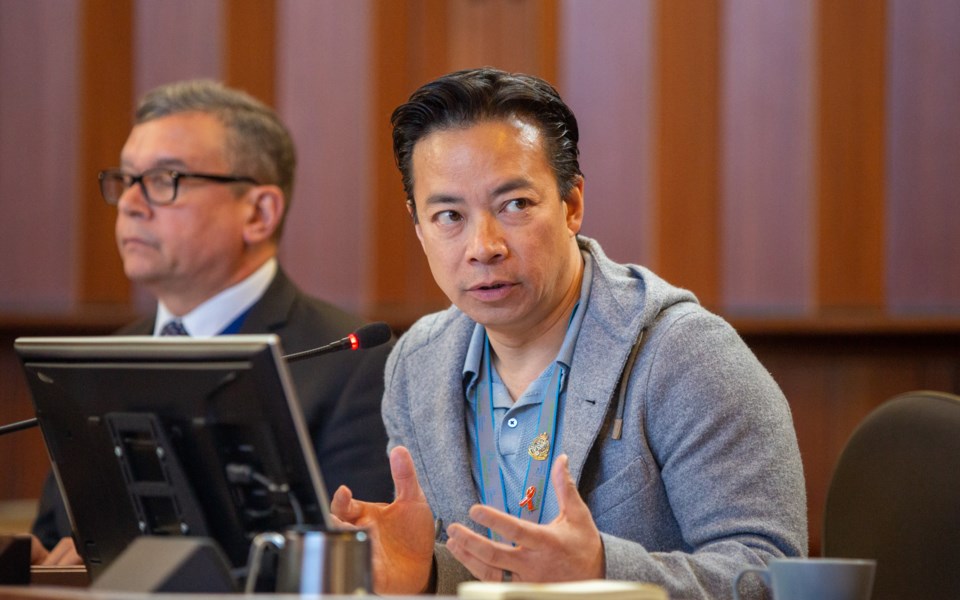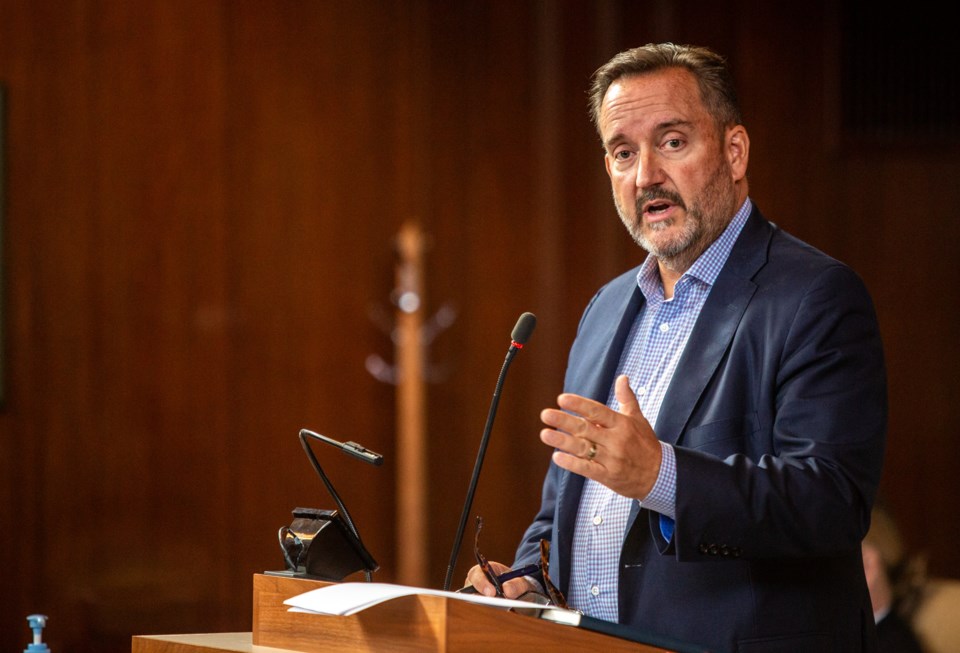A much-anticipated report from a task force created by Vancouver Mayor Ken Sim to find ways to spend tax dollars “more efficiently and responsibly” — that was supposed to be made public in October — will not be released until January.
That means council will not have the report in its hands Dec. 5 for the first day of deliberations to set the $2.15-billion operating budget for 2024, which the city’s finance team estimates could mean a property
Sim said that the report would be delivered to him on or before Oct. 3. The report was then supposed to be released to the public and go before council two weeks later.
“Once you dig in, you start to understand the challenge a lot more, and it brings up more questions,” Sim told reporters Tuesday. “So I think it's prudent to be thoughtful not to rush into something.”
Whether the report’s delay means council will push its final budget decision to next year was not something Sim would commit to when pressed by reporters. Historically, city council approves the budget in December.
“If it's prudent to approve [the budget] in the first quarter [of the year] like we did last year, then we'll do it,” the mayor said.
“People have to realize that we are running a city here. We have over 10,000 team members, and 680,000-plus people that rely on us. So if it takes a couple of weeks longer, then we'll wait a couple of weeks longer.”
Last year, Sim and his ABC Vancouver-dominated council decided to push a budget decision from December 2022 to March 2023 to give the 11 politicians — five of them rookies — time to set the budget.
The stated reason given last year was the current council had only been inaugurated Nov. 7, 2022 and hadn’t had time for a thorough look at the city’s finances. In the end, council approved an unprecedented 10.7 per cent property tax hike March 1.

'Not transformative recommendations'
Sim spoke to reporters after council heard from Randy Pratt, chairperson of the task force. Pratt is a chartered professional accountant, who spent 24 years at Adera Development Corporation as chief financial officer.
Pratt was among the nine members of the task force — who are all volunteering their time — introduced by Sim at his April news conference. The task force also works with a research team of 23 people, half of whom are grad students.
Pratt circulated some interim findings to council prior to his presentation Tuesday, but it was not shared publicly.
The findings did not include numbers but some recommendations, many of which were not unfamiliar to councillors interviewed after the presentation: lobbying senior governments for more funds, sticking to the core mandate of the city (which doesn’t include housing and health care) and arguing for a better municipal funding model.
Greater inter-department coordination — which is something former city manager Penny Ballem championed in a core services review during the Vision Vancouver administration — was another recommendation.
OneCity Coun. Christine Boyle: “We have done deep dives into the budget every year. It's difficult and important. A lot of the themes that came out of this report are important, but they're not new — they're not transformative recommendations.”
Report to be released Jan. 17
Pratt said he expected the task force would have a draft report completed in the next 10 to 12 days, with a final report scheduled to be released Jan. 17, 2024. The task force asked the mayor for an extension on delivering the report because of the mountain of work required to properly assess the city’s finances.
“What we've learned through this process is — and you've probably heard this saying: the solution to a problem is easier the further away you are from it,” he said. “And as we got closer to the situation, we realized that the time required to have a thoughtful and thorough report was more than we'd set out, initially.”
The crises of housing and overdose were mentioned several times during Pratt’s time at the lectern, with him clarifying that he wasn’t suggesting the city stop paying for housing, health care and other senior government responsibilities such as child care.
He specifically commented on the Downtown Eastside.
“It is a health and mental health crisis,” Pratt said.
“And it is very clear that that is not in the mandate of the city. I'm not proposing that our report will say, ‘That's not our problem and make it someone else's problem.’ These are our fellow citizens we need to care for. But we need to lean in on the provincial and federal government to cover and support the city in that situation.”



